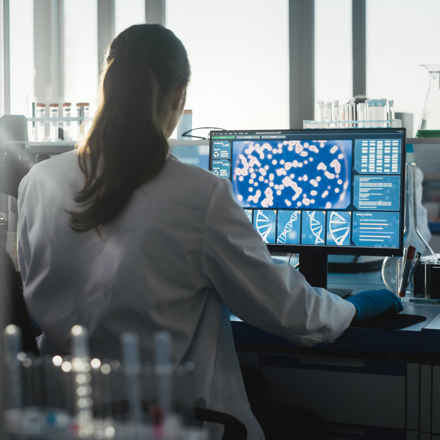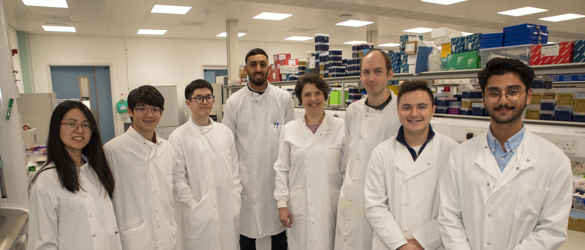Investigating a possible gene therapy for dry AMD

Professor Karl Matter, UCL Institute of Ophthalmology - £120,000
Research into a gene therapy for dry age-related macular degeneration (AMD), which aims to maintain the health of cells in the macula that are vital for vision.
What is the problem?
The retinal pigment epithelium (RPE) is a vital cell layer in the macula. The RPE is responsible for maintaining the health of the photoreceptors, the cells that sense light, and send information to the brain to create vision. There are no therapies currently focusing on maintaining RPE health.
What are they doing?
The team involved in the project have found a molecule involved in RPE health and function called Dbl3. Previous work of theirs has shown adding more Dbl3 to AMD cell models in the laboratory can benefit and restore RPE health. They now want to see whether using gene therapy to add more Dbl3 could be a treatment to help those with AMD.
How can this help?
If this gene therapy proves successful it could offer a new option for treating dry AMD, ideally with few injections. It could also possibly help those with other forms of macular disease, where the RPE becomes damaged (such as Stargardt disease).
See our other projects
Since 1987 the Macular Society has invested around £10 million in over 100 research projects.
Explore more research
Beating macular disease through funding medical research and improving the lives of those living with macular disease.
Get the latest research news from the Macular Society
To hear about life-changing research and treatments, subscribe to our monthly enewsletter today. Together we can Beat Macular Disease.
Sign up to our free email newsletter



